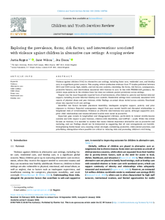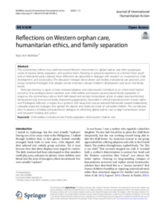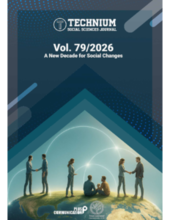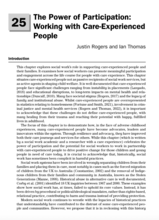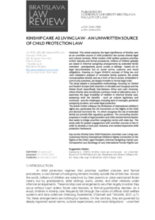Displaying 11 - 20 of 4424
This scoping review synthesises evidence from 77 studies (2014–2024) on violence against children in foster, residential, and kinship care, finding neglect to be the most common form of maltreatment, alongside physical, emotional, sexual, and peer violence across settings. While evidence on effective interventions is limited, the review highlights key risk factors and consequences, underscores the protective role of supportive relationships and trauma-informed care, and calls for stronger family-based care, oversight, and child-centred practices to reduce harm and promote well-being.
This paper proposes an expanded conceptual and normative framework for child protection systems to promote coherence, inclusivity, and accountability in both development and humanitarian contexts. Drawing on global data, recent initiatives, and a dual-axis framework distinguishing norms of operation and intent, it offers a field-tested definition to guide national planning, partner alignment, and systems-focused reform that upholds every child’s right to protection.
This commentary critiques Western-led global orphan care interventions, arguing that donor-driven aid, institutionalization, and voluntourism often perpetuate trauma, family separation, and an “orphan economy” despite good intentions. Drawing on lived experience, research, and ethical reflection, it calls for trauma-informed, family-preserving, and culturally respectful approaches that prioritize children’s rights, dignity, and long-term wellbeing.
This paper presents a rights-based framework for assessing when care orders are justified in child protection, integrating human rights standards, statutory criteria, and international jurisprudence around the principles of necessity, proportionality, and the child’s best interests. It offers practical guidance to improve consistency and accountability in decision-making, supporting evidence-based reform while reducing arbitrary or disproportionate child removals and prioritizing family preservation where possible.
This chapter in the book, Social Work Reflections, explores social work’s role in supporting care-experienced people and their families. It examines how social workers can promote meaningful participation and engagement across the life course for people with care experience.
Learn how this curriculum can help you address critical challenges faced by children on the move.
This article examines kinship care as an unwritten but legally significant source of child protection law, drawing on concepts of living law to show how informal caregiving practices operate across diverse legal and cultural contexts yet remain largely invisible within formal legal systems. Using comparative analysis from Europe and the Global South, it highlights both the strengths and risks of informal kinship care and calls for a child-centred, legally pluralistic approach to better align community norms with state and international law.
This study examines the experiences of 962 care-experienced adults from over 20 countries, focusing on the supports and barriers they encountered transitioning to adulthood after separation from parental care. Findings highlight the critical roles of supportive relationships, mental health and resilience, and access to education and resources, while also noting how financial hardship and limited services hinder successful transitions, informing recommendations for strengthened support systems.
This video provides a short overview of the Global Charter on Children's Care Reform:Guidance for Requesting Technical Assistance, which provides instructions on how governments can request technical support from a team of care reform advisors to develop or begin implementing those commitments. This includes a description of the different types of technical assistance available, ways it can be provided, and a step-by-step guidance for submitting requests.
This video provides a short overview of the Global Charter on Children's Care Reform: Guidance for Developing Commitments, which supports governments to design ambitious, measurable, and context-specific commitments that align with the Charter’s principles. It includes practical criteria, examples, and participatory approaches to ensure commitments are realistic, well-resourced, and responsive to children’s needs.

